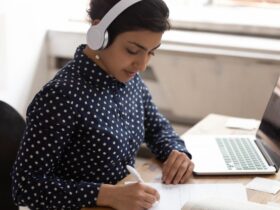The wide variety of women with disabilities in faculties changed into “fewer” than boys, a UNESCO document Wednesday i.E July 3, 2019, stated and highlighted that the wide variety of enrolled youngsters drops substantially with each successive level of schooling. Three-fourths of the children with disabilities at the age of 5 years and one-fourth among 5-19 years do not go to any educational institution, the file stated. The 2019 “State of the Education Report for India: Children with Disabilities” took into account the 2011 census, according to which there are seventy-eight,64,636 youngsters with incapacity in India, constituting 1.7 percent of the entire infant population. The report highlighting accomplishments and demanding situations almost about the right to education of children with disabilities (CWDs) was released right here on Wednesday.
CWD Study: More boys pupils than girls
“The quantity of youngsters enrolled in school drops notably with each successive degree of education. There are fewer girls with disabilities in schools than boys with disabilities. “Significant gaps, therefore, stay, even though successive government schemes and programs have introduced big numbers of kids with disabilities into faculties,” the report said. It said the handiest 61 percent of CWDs elderly between 5 and 19 had been attending an educational institution compared to the general parent of seventy-one percent while all children are considered. “Around 12 percent of CWDs dropped out of college, which is similar to the overall percent of dropouts among all kids. 27 percentage of CWDs in no way attended any academic group, in place of the general parent of 17 percent while the whole toddler populace is taken under consideration,” it delivered.
A wide variety of youngsters with disabilities pursue schooling thru NIOS.
The file said a large number of children with disabilities do now not go to normal faculties but are enrolled at the National Institute of Open Schooling (NIOS). An evaluation of enrolment figures at NIOS suggests a decline for most categories of disabilities between 2009 and 2015. “The largest organization of CWDs enrolling with NIOS over the years had been people with learning disabilities. While there was a drop in enrolment of students with locomotor and visible impairments, there has been an upward push in people with a couple of disabilities.
“The percentage of kids attending faculties is the bottom among people with more than one disability, intellectual illnesses, and mental retardation,” the document stated. The report mentioned that inclusive training is complicated to implement and requires great expertise in the various needs of kids and their families across distinct contexts. “India has made full-size development in terms of putting in the region a sturdy felony framework and various programs and schemes that have stepped forward enrolment prices of children with disabilities in colleges. “However, in addition, measures are had to ensure the best schooling for every baby to obtain the goals and goals of schedule 2030 and extra in particular Sustainable Development Goal four,” it stated.
Why is the mindset of parents and teachers closer to mainstream training crucial?
According to the UNESCO report, the mindset of dads, moms, and teachers, including youngsters with disabilities, in mainstream education is likewise critical to accomplish inclusive education except for accessibility to bodily infrastructure, approaches in the college, assistive and ICT era, and devices being essential sources. The file has made positive pointers to enhance the nation of training for CWDs, consisting of amending the RTE Act to align with the RPWD Act by including particular concerns about the education of such youngsters.
Establish a coordinating mechanism beneath HRD Ministry for effective convergence of all schooling programs for kids with disabilities, ensuring specific and ok monetary allocation in education budgets to satisfy the gaining knowledge of desires of youngsters with disabilities, strengthening facts systems to make them sturdy and dependable and beneficial for planning are many of the tips made.
“Massively make the usage of facts technology bigger for the schooling of youngsters with disabilities. Give a threat to each child and depart no child with incapacity in the back of. “Transform teaching practices to useful resources the inclusion of various first-year students. Overcome stereotypes and construct fantastic tendencies towards kids with disabilities, both in the lecture room and beyond,” the document said.














